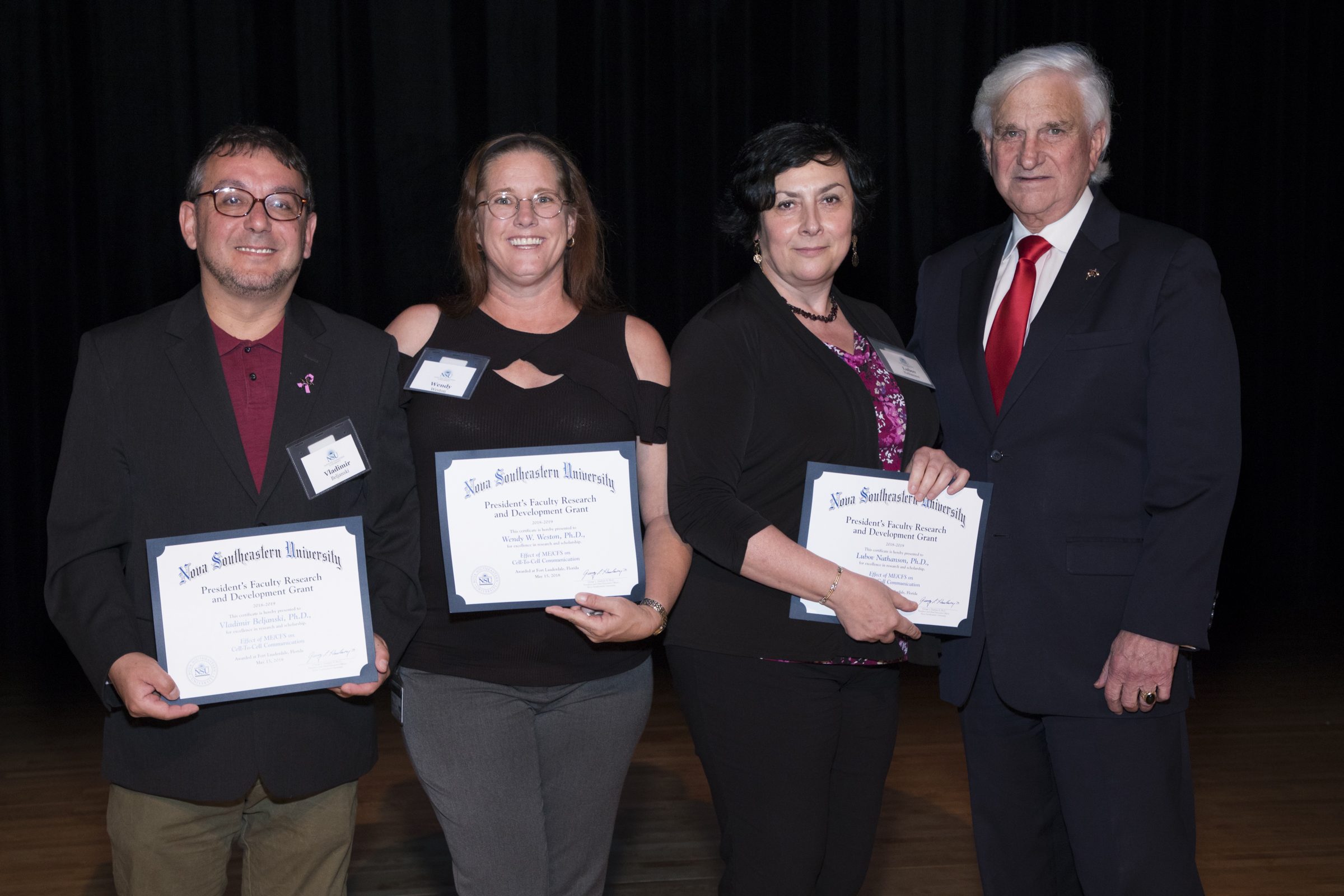Effect of ME/CFS on cell-to-cell communication
Grant Winners
- Lubov Nathanson, Ph.D. – Dr. Kiran C. Patel College of Osteopathic Medicine
- Vladimir Beljanski, Ph.D. – Dr. Kiran C. Patel College of Allopathic Medicine
- Wendy W. Weston, Ph.D. – Dr. Kiran C. Patel College of Allopathic Medicine
- Amy Mohamed – Halmos College of Oceanography and Natural Sciences
- Hafsa Khan – Halmos College of Oceanography and Natural Sciences
Deans
- Elaine Wallace, D.O., M.S., M.S., M.S. – Dr. Kiran C. Patel College of Osteopathic Medicine
- Johannes Vieweg, M.D., FACS – Dr. Kiran C. Patel College of Allopathic Medicine
Abstract

Myalgic Encephalomyelitis/Chronic Fatigue Syndrome (ME/CFS) is a complex condition that is associated with a variety of symptoms that impact multiple organ systems and have impacts on cell-cell communication. The underlying mechanism of disease onset and progression remains unclear and treatment relies solely on symptom management due to lack of understanding mechanisms of disease activity. While previous research efforts in ME/CFS have focused on targets further down the signaling transduction pathway such as enzyme activation and proteomics, our research focuses on upstream regulators of transcription by RNAs that are transferred by special extracellular vesicles which are called exosomes. Exosomes have been implicated in a variety of physiological and pathological processes. They contain specific RNA transcripts that are thought to be involved in cell-to-cell communication. In an effort to understand the underlying mechanisms of ME/CFS presentation, the main objective of this research proposal is to identify differences in exosomal RNA content between patients diagnosed with ME/CFS and healthy controls. We intent to understand whether the RNA content of plasma exosomes participate in dis-regulation of immune function in ME/CFS patients. We aim to use well-established methods and techniques, including RNA sequencing (RNAseq), small RNA sequencing (Small RNAseq) and NanoString nCounter technology.
Specific Aim 1. To isolate and characterize plasma-derived exosomes from ME/CFS patients and matched healthy controls. Identify and validate long (more than 200 nucleotides) RNAs in exosomes of ME/CFS patients and compare with the RNA content in exosomes of matched healthy controls. We hypothesize that the ME/CFS-changed whole or partial regulatory long non-coding and protein-coding RNA transcripts are transferred between immune cells by plasma-derived exosomes in patients with ME/CFS.
Specific Aim 2. Identify and validate short (less than 200 nucleotides) RNAs in exosomes of ME/CFS patients and compare with exosomes of matched healthy controls. We hypothesize that the ME/CFS-changed small RNA transcripts (including microRNAs, small nuclear RNAs, small nucleolar RNAs, etc.) are transferred by plasma-derived exosomes in patients with ME/CFS.
The results of this proposal will be used as preliminary results for the re-submission of previously scored NIH grant.